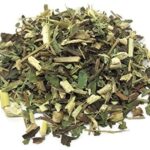Bilberry | European Blueberry | Vaccinium myrtillus
The name Bilberry is actually derived from the Danish ‘bollebar,’ which means dark berry in reference to the typically dark-blue fruit. Bilberry bush is a relative of the blueberry and is native to many areas, including the Rocky Mountains and regions of Europe and Asia. Its berries and leaves have been used for medicinal purposes since the Middle Ages for a variety of conditions, including diarrhea, scurvy, infections, burns, and diabetes. During World War II, British pilots ate bilberry jam, thinking it would improve their night vision.
Today, Bilberry is used as a dietary supplement for cardiovascular conditions, diarrhea, urinary tract infections, eye problems, diabetes, and other conditions. Bilberry extract is sold in tablets, capsules, and drops, and the berries are sold dried and as a powder. The leaves are made into teas.
Benefits:
- Protection against liver damage
- Chronic venous insufficiency
- Diabetes, Atherosclerosis, Protection against kidney failure
- Prevention of cancer
- Diarrhea and wounds
- Lower the Risks of Alzheimer’s Disease
- Cardio-protective effects
- Improve Bad Cholesterol
- Helps against Urinary Tract Infections
- Protection against eye disorders
- Digestive health
- Helps protect the Skin
- Acts as a Natural Cosmetic Ingredient
- Improve women’s health
Common Names:
European blueberry, huckleberry, whortleberry, blueberry
PLEASE CONSULT YOUR MEDICAL PROFESSIONAL FOR CONTRA INDICATION WITH YOUR MEDS





Reviews